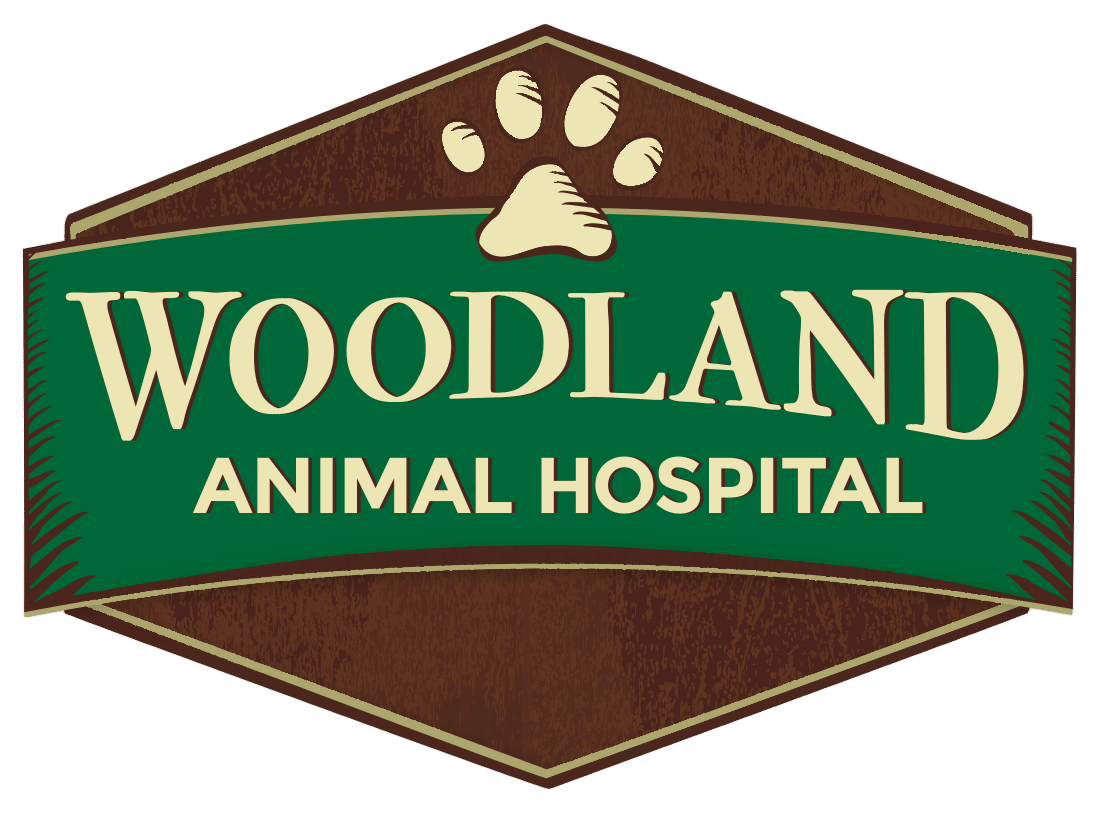At Woodland Animal Hospital, we excel at providing loving care for our furry little patients when they are ill—no one dislikes seeing pets sick more than we do! We believe the best strategy to keep pets healthy and free from common illnesses is a good dose of prevention. Pet vaccinations are the most effective means to guard against common feline and canine sicknesses.
For adult pets, we recommend vaccine appointments every
six months.
Depending on your pet’s age and vaccination history, your veterinarian might recommend a custom vaccination plan.
To provide the most effective veterinary care for Henry County’s pets, Woodland Animal Hospital keeps a stock of pet vaccinations that are essential for both dogs and cats. Our feline friends receive vaccines that protect against several viruses and diseases that can damage their gastrointestinal, respiratory and immune systems. Our canine friends receive vaccines that guard them from diseases that can damage their respiratory, immune and excretory systems.
It is imperative that dogs and cats receive the recommended pet vaccinations that are specific to their species. Regardless if your pet is an inside pet or an outside pet, it is crucial to their health that they are vaccinated. Indoor pets can still contract viruses and diseases through an open window or when they go outside to use the bathroom. Pet viruses are often spread through direct contact with infected animals who are either wild or unvaccinated. Considering the deadly and progressive nature of the viruses that affect dogs and cats, it is vital to safeguard your furry companion with the recommended vaccines.
At Woodland Animal Hospital, we offer multiple cat and dog vaccinations. We use the most state-of-the-art vaccine technology and methods available to administer our pet vaccinations. Below, you will find a list of the various pet vaccinations we offer, separated by species.

Dog Vaccinations
We know you love your pooch to pieces and want nothing more than to keep him or her happy and healthy. One of the easiest and most helpful ways you can ensure your dog’s health is to have him or her immunized with the recommended dog vaccinations. Dogs can develop a host of illnesses that can be detrimental to their bodies, but the good news is that Woodland Animal Hospital offers four different dog vaccines to protect against the most common ailments affecting canines. Partnering these vaccinations with routine heartworm testing and prevention will ensure your dog lives a long, healthy life. Read the additional information below to find out more about each of our dog vaccinations.
Dogs should receive the DHPP immunization when they are between the ages of six and eight weeks old. This highly effective dog immunization protects against canine distemper, hepatitis, para-influenza and parvo. We suggest your dog continue to receive this vaccine every three to four weeks until he or she is 16 weeks old. We will then administer this dog vaccination one year after the last puppy and then annually going forward.
Bordetella is the ailment colloquially referred to as kennel cough, and it adversely affects a dog’s respiratory system. It is very common and contagious, so it is of the utmost importance that your fury friend receives the immunization for this disease. We administer the bordetella dog immunization intranasally during the initial puppy visit, and then once annually.
Leptospirosis, also known as lepto, is a bacterial disease that can affect both humans and pets. It occurs all over the world and leads to liver and kidney damage as well as death if left untreated. Humans and pets can get this bacterial infection by coming into contact with infected wild animals (e.g., possums, skunks, raccoons and rodents), lepto-infested water or infected urine. Since this disease can harm animals and humans, we encourage dogs to receive this immunization via two initial doses three weeks apart, and then on a yearly basis.
It is very important that your furry friend receive this vaccine, as rabies is a deadly virus that affects the brain and spinal cord of all mammals, including dogs and cats. Georgia law requires that every dog receive a rabies shot during his or her first canine vaccine appointment as long as they are 12 weeks of age or older, and then yearly following that first vaccine.
Lyme Disease can be carried by ticks and transferred to your dog or even to people as Lyme disease is a disease of humans as well. Symptoms may range from fever and lethargy, to joint pain and lameness. Not all dogs need this vaccine, as not all dogs have regular exposure to ticks per say, so ask one of our veterinarians if this vaccine is right for your dog. Puppies or adult dogs who have not had the vaccine will receive two doses 3 weeks apart after, and then one dose each year after that.
Influenza (CIV or H3N8) – Canine Influenza, or the “dog flu,” is caused by the H3N8 Virus, which is a disease of dogs (not humans). The virus is spread from sick dogs that may be sneezing or coughing, contaminated objects or people moving between infected to uninfected dogs – this means the dogs don’t ever have to come in direct contact with other sick dogs in order to catch the virus. Symptoms may be mild such as coughing, runny nose and fever or severe such as pneumonia. Puppies or adult dogs who have not had the vaccine will receive two doses 3 weeks apart after, and then one dose each year after that.
Cat Vaccinations
To ensure your furry feline friend’s nine lives are as long and prosperous as possible, it is important to make sure he or she stays up to date with all the recommended cat vaccinations. Cats are vulnerable to many life-threatening diseases that are largely preventable. At Woodland Animal Hospital, we offer cat vaccinations and preventative care that will assist in guarding against numerous illnesses so your cat can live a long, healthy and active life. Read the information below to learn more about the specific cat vaccinations we offer at Woodland Animal Hospital.
It is very important for our feline friends to receive these cat vaccinations, as it is a deadly virus that affects the brain and spinal cord of all mammals, including cats and dogs. At Woodland Animal Hospital, we administer this immunization one time after cats reach 12 weeks of age. Your feline companion will then receive this cat vaccine every year once to ensure the highest level of protection.
The FVRCP vaccine is often referred to as the “feline distemper” vaccination that protects again three highly contagious viruses. Feline viral rhinotracheitis, calici virus and panleukopenia wreak havoc on cats’ respiratory and gastrointestinal systems. Your furry feline companion should receive this shot as early as six weeks of age. The shot should then be given every three weeks until the kitten is 16 weeks old, as it will ensure there is not any maternal antibody competition. We will then administer this cat vaccine yearly for the most advanced disease protection.
Feline leukemia virus, also referred to as FeLV, is a deadly viral disease that has devastating effects the feline immune system. This affliction can also lead to the development of a number of cancerous conditions, including leukemia. It may take months or even years before affected cats show symptoms of FeLV—all the while, they could be affecting other cats. We recommend our feline friends begin receiving this vaccine at the age of nine weeks for the most protection. A booster will be administered a year after the initial shot and then once every year following that.

Woodland'S SCHEDULE FOR DOG VACCINATIONS
We recommend all puppies begin visiting the vet once they turn six weeks old and continue every two to four weeks until they are 16 weeks of age. These visits help us ensure your dogs are fully protected.
At our facility, puppies receive vaccine boosters every three to four weeks until they reach 16 weeks of age, then annually. Once they reach adulthood, they will be on this general vaccine schedule:
- Bordetella vaccine – Every six months
- Leptospirosis vaccine – Annually
- DAPP- (Canine Distemper) – Annually
- Rabies – Annually
- Canine Influenza – Annually
- Lyme – Annually for adult dogs who are at risk. Dogs with regular tick exposure are at greater risk.
Woodland’S SCHEDULE FOR CAT VACCINATIONS
Our vets recommend all kittens begin visiting our office once they turn six weeks old and continue every two to four weeks until they are 16 weeks of age. These visits help us ensure your cats are fully protected.
At Woodland Animal Hospital, all kittens receive vaccine boosters every three to four weeks until they reach 16 weeks of age, then annually. Once they reach adulthood they will be on the following general vaccination schedule:
- Rabies – Annually
- FVRCP (Feline Distemper) – Annually
- Feline Leukemia- Annually for adult cats who are at risk. Indoor/outdoor cats are at greater risk, as are cats who are exposed to another cat in the house that is an indoor/outdoor cat.



